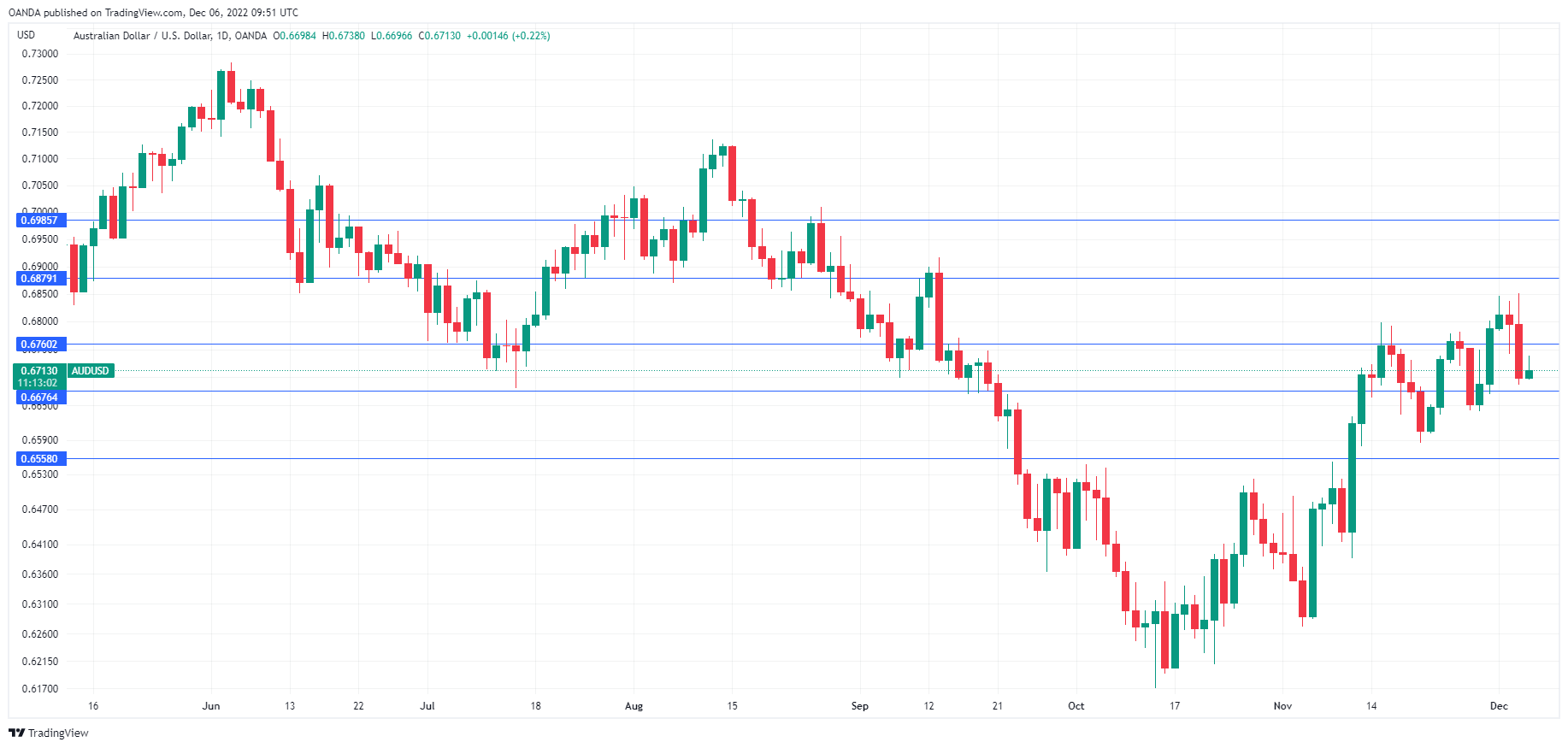The British pound has recovered after starting Tuesday with losses. In the North American session, GBP/USD is trading at 1.2247, up 0.40%.
The US dollar is finally improving this week after a recent rough spell against the pound. The dollar received a boost from Friday’s employment report, which showed that job creation and wage growth were stronger than expected. This dampened market hopes of a Fed pivot, although Jerome Powell has strongly signaled that the Fed will likely ease the pace of rates with a 50 bp hike next week.
GBP/USD has put together four straight winning weeks, gaining a massive 900 points during that time. Still, it’s important to remember that the pound’s recent upswing is more a story of US dollar weakness rather than newfound pound strength, and the outlook for the pound does not look all that promising.
The UK economy is in recession, and this week’s PMIs indicate weak growth. Manufacturing and Services PMIs both came under 50.0, which indicates contraction. Construction PMI slowed to 50.4, which points to virtually no growth. This was down from 53.2 and below the consensus of 52.0.
Inflation is at a staggering 11.1%, GDP shows negative growth, and unemployment is expected to rise. One can feel for BoE Governor Bailey, who is expected to bring down inflation and somehow restore economic growth, all with the wave of the rate wand.
Of course, there are no magic solutions to the UK’s deep economic problems, and Bailey would probably agree with the stance of many central bankers that “too much is better than too little” – better to raise rates more than needed rather than not do enough and have high inflation fester. The trick for Bailey will be to continue raising rates and curb inflation while guiding the weak economy to a soft landing.

GBP/USD Technical
- 1.2169 and 1.2027 are the next support levels
- GBP/USD is testing resistance at 1.2234. Above, there is resistance at 1.2307
